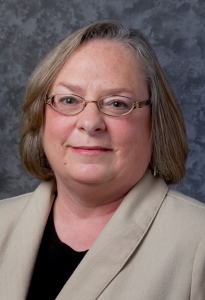by Kelly Rogge, KCKCC
A Kansas City Kansas Community College culinary instructor and area chef has been recognized by the American Culinary Federation of Greater Kansas City Chefs.
Chef Richard McPeake, instructor of culinary arts at the Dr. Thomas R. Burke Technical Education Center, received the ACF Chef of the Year Award at the 41st annual ACF Kansas City Chefs’ Association Dinner and Awards event Jan. 22. ACF allows its members not only a chance to network but also to get involved in many community service efforts. Established in 1973, the chapter has grown to become one of the largest in the United States.
The ACF Chef of the Year Award honors and recognizes a local chef each year. Once nominated, a chef needs to achieve 10 points on a 14-point scale to qualify. These points include attending meetings, activities completed to help the local chapter, published articles on food trends, charity work and attending regional or national conferences, among others. McPeake earned 11 points, largely by working with KCKCC culinary students to help raise more than $14,000 for local charities in 2016.
McPeake said he was shocked when he learned he had received the award. In fact, because of prior commitments, he was not even able to attend the awards event. It was not until other chefs started calling, that it began to sink in.
“A local chef was retiring, and I figured he would be selected for all of his hard work during his career,” he said. “I really thought some of the chefs were just playing a joke with me, since I had been runner up so many times (15 straight years). Once it set in, I was very honored and humbled. I have more than 40 food awards in the restaurant business, including the 2008 ACF President’s Gold Medal for my ongoing teaching on BBQ and well over 300 awards in BBQ contests. In addition, I was a Past Grand Champion of the American Royal (1982). This one ranks next to my Henry M. Louis Outstanding Faculty Award that I received in 2016. These two awards are very humbling, and I am honored to have been lucky enough to have been awarded them both.”
McPeake graduated from the Culinary Institute of America in 1978 and has been teaching at KCKCC for the last six years. He is also a chef instructor and owner for Rib Stars BBQ and is an instructor at the Culinary Center of Kansas City where he teaches both junior chef and adult cooking classes. An accomplished cookbook author, he has published five cookbooks and is the founder and owner of Rib Stars Rub Me Tender Dry Rubs.
“My wife and I have been together for 40 years, and she has supported all of my decisions in my career,” McPeake said. “She helps me get ready for my adult classes and was excited when I was offered and accepted the culinary instructor position at KCKCC by Dean (Clifford) Smith and Chef Cheryl (Runnebaum). They are two of the best people I have been around in my career for support and direction.”
McPeake said although he worked in restaurants as a teenager, he did not think about becoming a chef until he was serving in the military and realized he loved cooking for people.
“My commander in the Navy actually helped me get into the Culinary Institute of America,” he said. “I then walked away from my 40-year chef job in 2007 and started teaching youth and adult cooking classes. I made a decision that for my last 10 to 15 years of my career, it was time to pay it forward. What a better way then teaching the young future chefs of tomorrow.”
McPeake said the most rewarding part of his job is seeing students believe in themselves. If you’re a chef and you dream of opening up your own restaurant one day, or you work as a chef in a restaurant but would like to give it a new twist, you could consider implementing a menu development plan to wow your dining guests and increase your profits.
“I believe they know the goal they are heading for. I think of myself as the ‘wind’ blowing their sails in the right direction,” he said. “My classes are not just about cooking and management, they are about everyday life. ‘WIIFM’ (What’s in it for me). What can they get out of the lesson, class or discuss to help them achieve the goal they need.”

